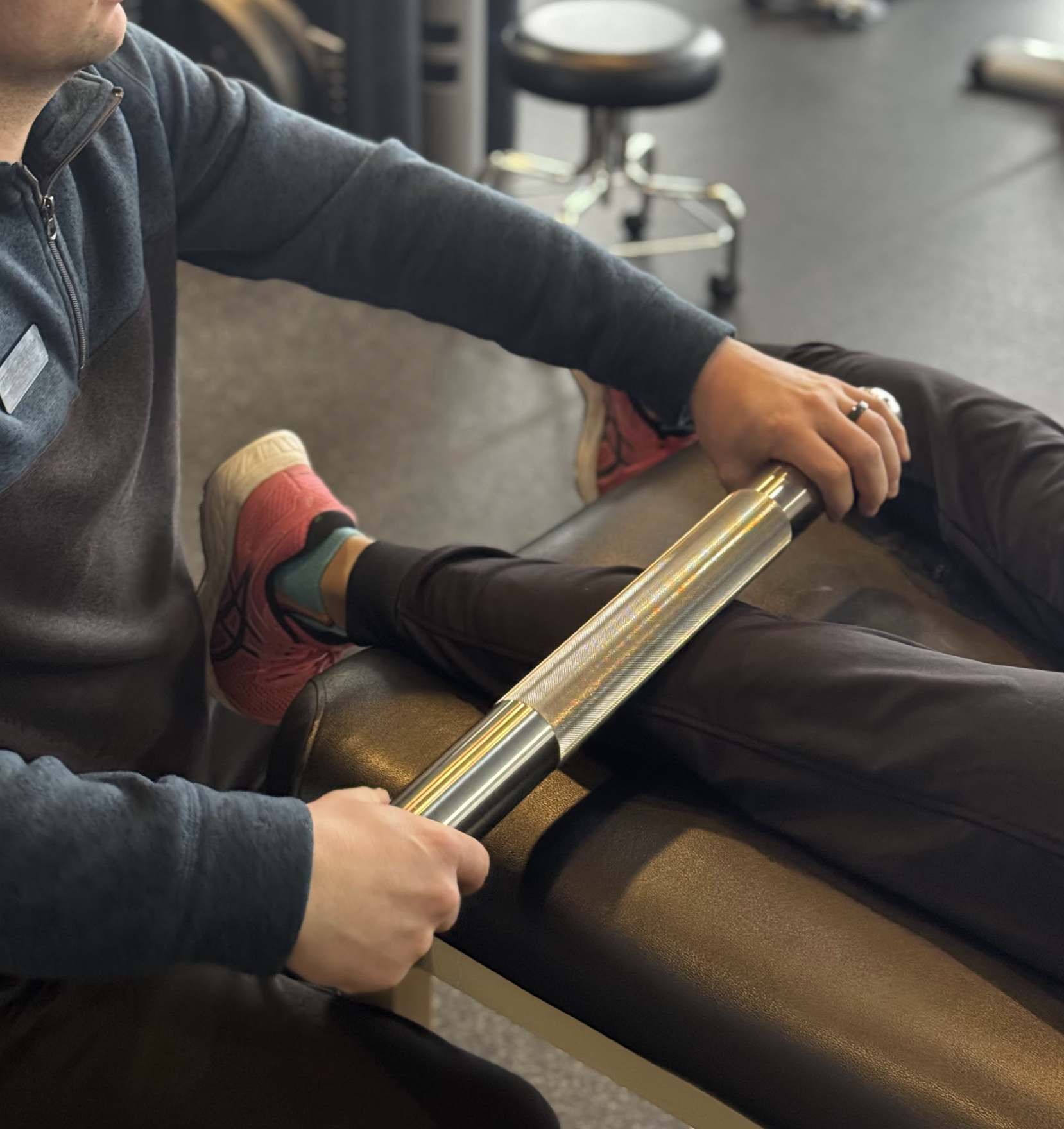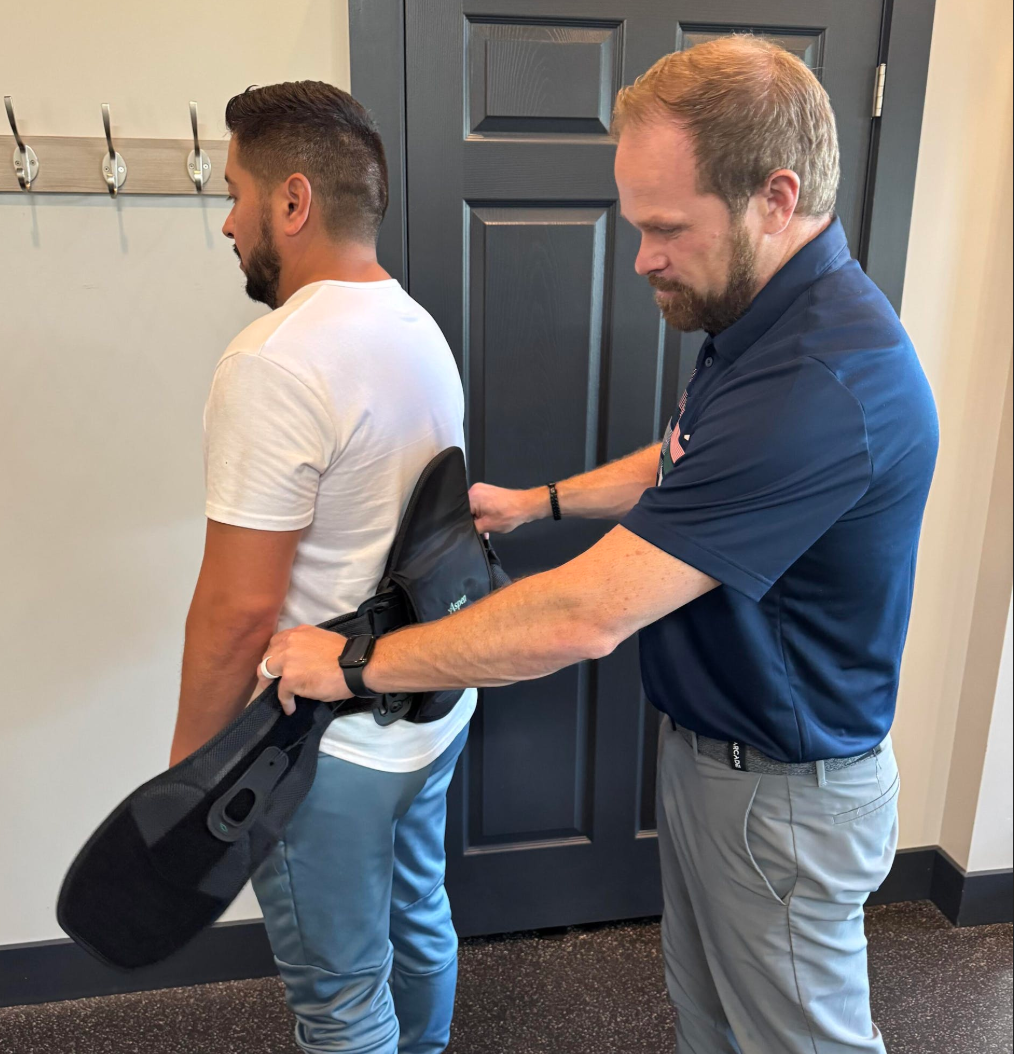Share this article:
Written by: Advanced Physical Medicine
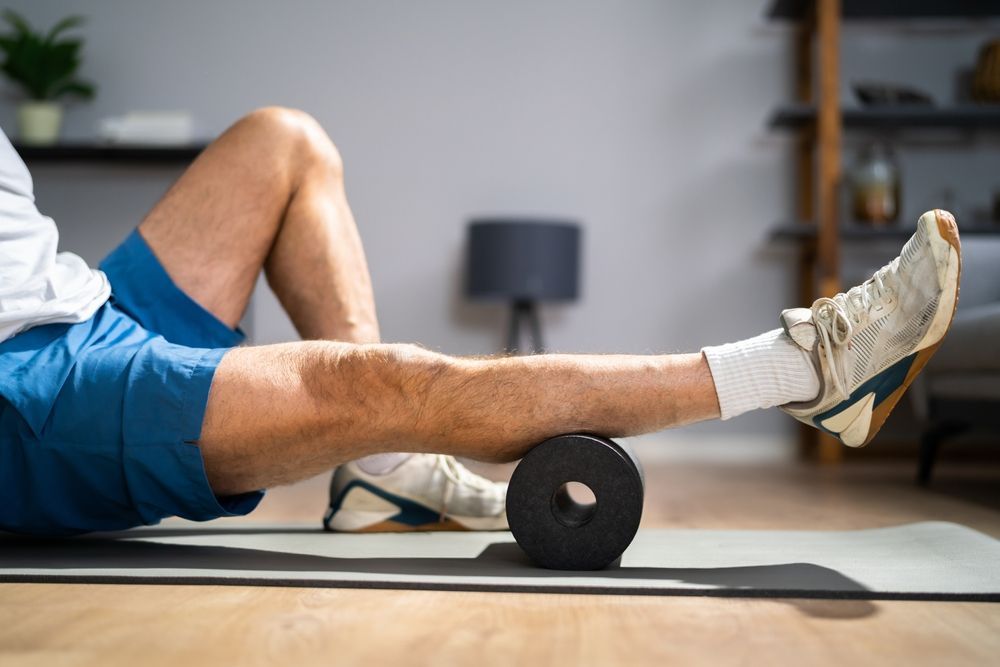
Waking up with a limited range of motion and searing pain can be quite alarming and frustrating, particularly if it prevents you from being able to move on with your day. These muscle knots are not harmful, but they can be quite uncomfortable, especially if not treated promptly and properly.
Knowing what muscle knots are, what causes them, and how you can treat them can help you take the next best steps for your health and well-being.
What Exactly is a Muscle Knot?
Most people know exactly when a muscle knot has formed, but they don't quite know what it is. What is a muscle knot? Well, despite its name, a muscle knot is not actually a twist in your muscles. Rather, it's a spasm that occurs regularly, causing you pain, discomfort, and possibly limited mobility.
How Do Muscle Knots Form?
While muscle knots are a relatively common condition among people of all ages and abilities, it's important to know that they are not simple issues to address. This is largely because they can form as a result of a variety of activities and conditions. The most common causes of muscle knots include:
- Heavy lifting without proper stretching.
- Repetitive motions that result in overuse of muscles.
- Mental and emotional stress that can lead to tension in the muscles.
- Poor posture, especially when sitting and working at a desk all day.
- Joint issues that can put a strain on the muscles.
- Insomnia and chronic fatigue.
- Dehydration.
Where Do Muscle Knots Commonly Occur?
Muscle knots most commonly occur in the back, shoulders, and neck. The exact location of the knot and the severity of the spasm can directly impact the amount of pain and discomfort that you are in. For instance, a significant knot near the base of the neck can result in radiating pain that extends down the shoulders and even into the arms. Addressing muscle knots promptly can help reduce severity and minimize discomfort.
Who Experiences Muscle Knots?
Anyone can experience a muscle knot, regardless of their age or physical ability. In fact, if you begin to talk with your friends or relatives, you will probably find that most people you know have had muscle knots at some point in their lives.
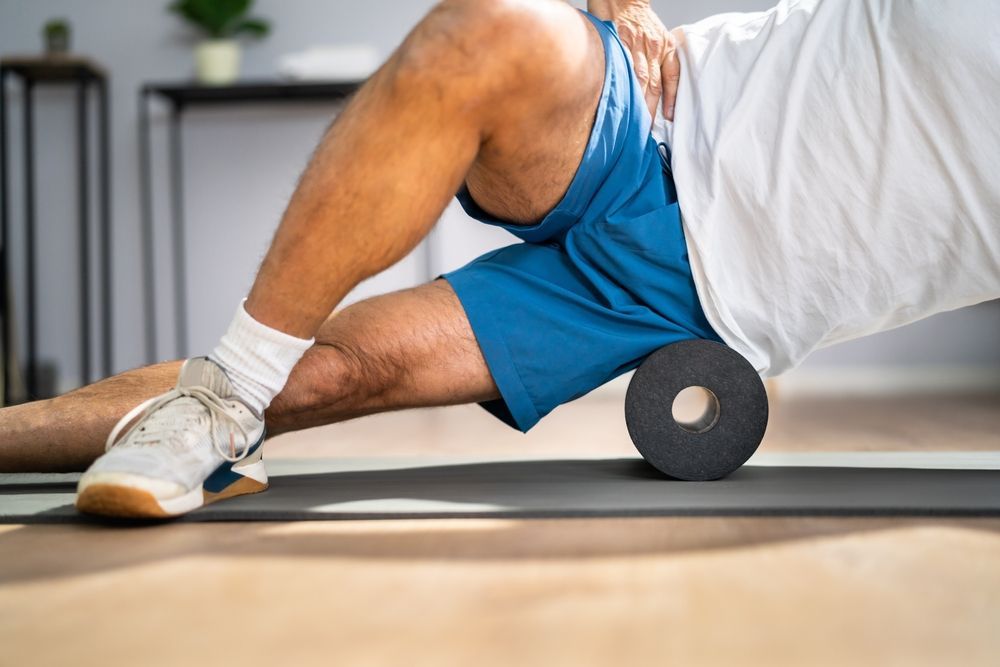
While anyone can experience muscle knots, certain factors can make you more vulnerable to the development of muscle knots, such as:
- Your age. As you begin to age, you will find that your muscles begin to weaken, which can leave you more prone to muscle knots.
- Chronic conditions or disease. Certain diseases increase the risk of developing muscle knots in the body. In particular, people with fibromyalgia are at a higher risk of developing muscle knots.
- Your stress level. Excessive stress can put significant pressure on your body. If you are stressed, your muscles are more likely to be tense, which can increase your risk of developing muscle knots.
How to Treat Muscle Knots
In most cases, if your muscle knot is identified early, and you begin to take measures to treat it, you will be able to reduce the pain and discomfort associated with the muscle knot with at-home remedies. However, in the case of a severe muscle knot that will not subside, you will likely want to work with a physical therapist who specializes in comprehensive, high-quality, and compassionate care.
Stretch
Stretching is one of the best ways to both treat and prevent muscle knots. If you are experiencing a muscle knot, you may want to try some gentle stretching exercises that are targeted for that specific area. Either your physical therapist or your physician can provide you with more information about the best stretches for your particular circumstances.
Ice and Heat Compressions
Muscle knots sometimes form because the muscles are too tense and tight. By alternating ice and heat compression, you can help naturally loosen the muscles and alleviate the muscle knots. You can perform both ice and heat compression at home, making this one of the easiest and most convenient remedies for muscle knots.
Chiropractic Manipulative Therapy
If you find that the same muscles continue to experience knots on a regular basis, then you may want to consider
chiropractic care. Chiropractic manipulative therapy is a specialized technique that is applied to the affected muscle or joint to restore both range of motion and function. Chiropractic manipulative therapy is known for its quick and long-lasting results.
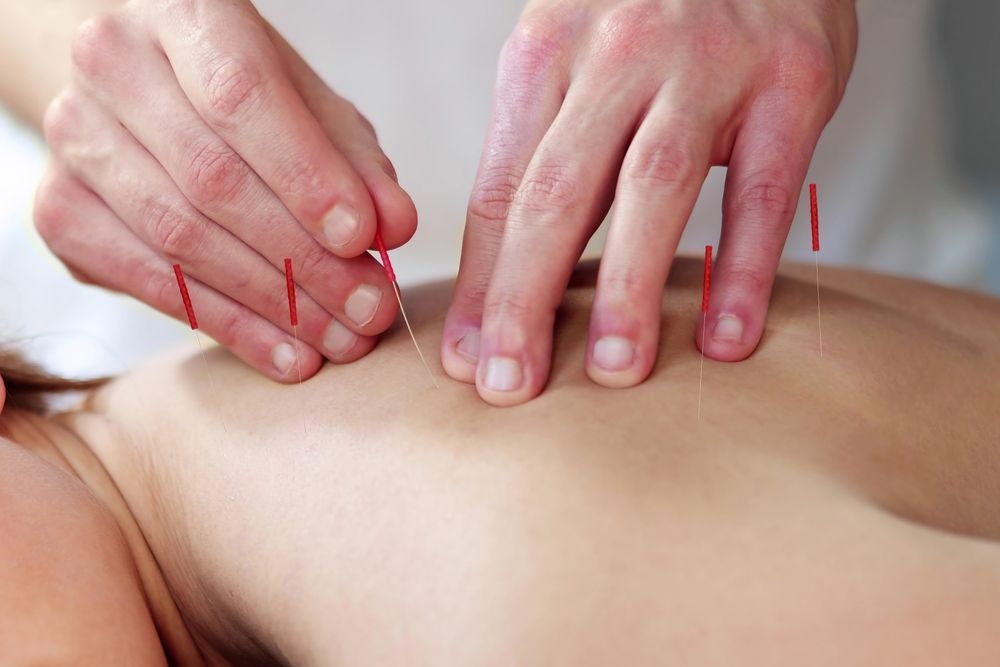
Acupuncture
Considered to be an ideal supplement to chiropractic care, acupuncture is a treatment that is rooted in ancient techniques and has long been known for its healing abilities. During acupuncture treatment, a trained acupuncturist will insert fine needles into strategic meridians on your body in order to alleviate pain associated with a muscle knot. In addition to instantly reducing pain, acupuncture offers many additional benefits, including reducing stress and anxiety, improving the quality of your sleep, and supporting your digestive system.
Massage Therapy
One of the best ways to alleviate muscle knots is through hands-on manipulation. A licensed and experienced massage therapist can provide you with personalized care, ensuring that you get safe and effective relief from the pain associated with the muscle knots in your body.
Physical Therapy
In the event of severe and persistent muscle knots, you may want to consider physical therapy treatment services. Whether you are suffering from a muscle knot as a result of a workplace injury or a sports injury, an experienced and qualified physical therapist can provide you with expert care that will not only alleviate your pain but also address the root cause of the muscle knot.
Request a Consultation Today
At Advanced Physical Medicine, we can provide comprehensive treatment services designed to reduce the frequency and severity of muscle knots. Our holistic approach to medicine prioritizes preventative care, allowing you to strengthen your muscles and joints so that you experience fewer muscle spasms and injuries over time.
To learn more about what a muscle knot is and how it can be treated, request your consultation appointment today.
Connect with Us:







